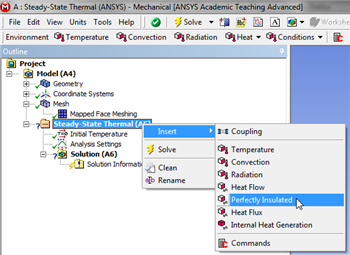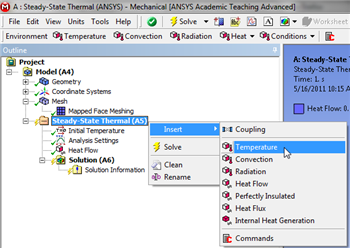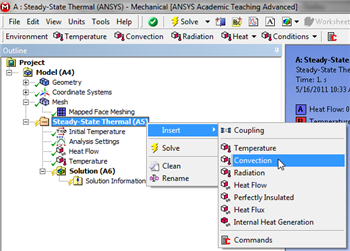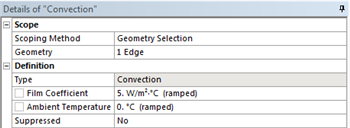
|
Author: John Singleton, Cornell University Problem Specification |
The top and left sides of the rectangular domain are perfectly insulated. In order to incorporate these boundary conditions, first (Right Click) Steady-State Thermal > Insert > Perfectly Insulated, as shown below.

https://confluence.cornell.edu/download/attachments/146918515/PerfIns_Full.png |
The bottom side of the rectangular domain has a constant temperature of theta=1. To implement this boundary condition, (Right Click) Steady-State Thermal > Insert > Temperature , as shown below.

https://confluence.cornell.edu/download/attachments/146918515/InsTemp_Full.png |

https://confluence.cornell.edu/download/attachments/146918515/SetTemp_Full.png |
The right side of the rectangle has a convective boundary condition with a Biot Number of 5 and and ambient temperature of 0. To implement this boundary condition, (Right Click) Steady-State Thermal > Insert > Convection , as shown below.

https://confluence.cornell.edu/download/attachments/146918515/InsConv_Full.png |

https://confluence.cornell.edu/download/attachments/146918515/DetConv_Full.png |